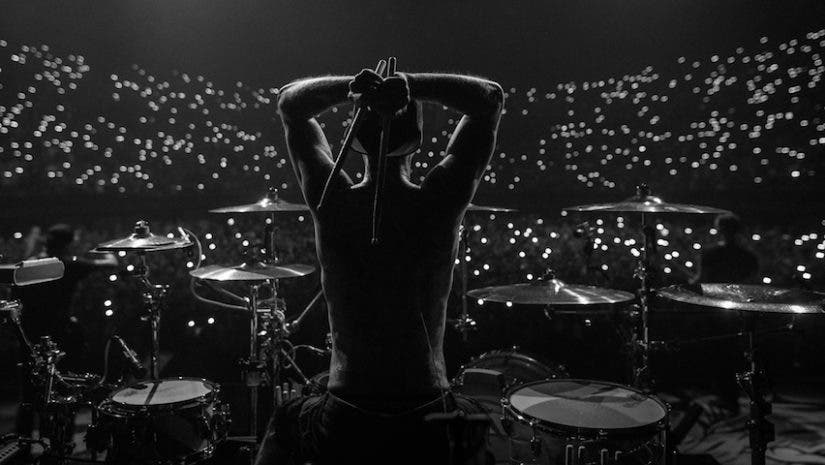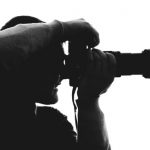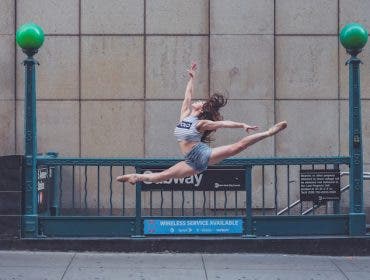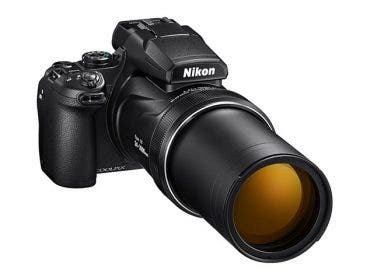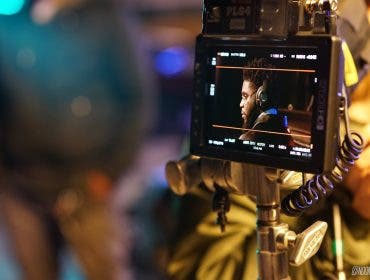Adam Elmakias is captivated by music, musicians, and the intense contemporary music scene, and has been since his early teens. Today, at age 29, he’s an internationally recognized professional who travels everywhere from his current base in San Diego, California to far-flung places such as Islamabad, Mumbai, and Rio De Janeiro to document musicians, their lives, and their performances with his camera.
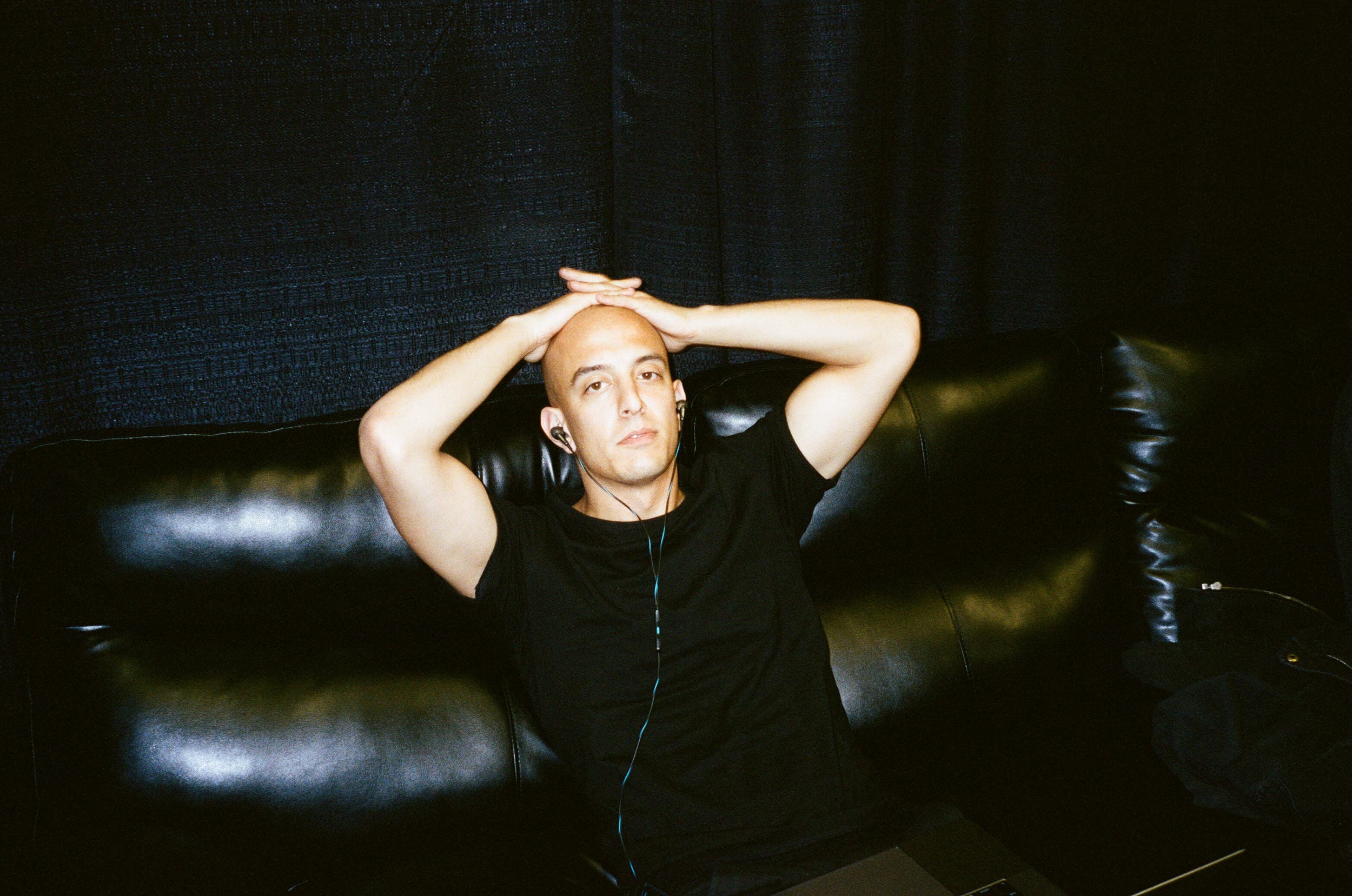
Elmakias grew up in the culturally diverse, art-friendly city of Madison, Wisconsin, attended numerous local concerts when he was in high school, and started bringing his camera.
“My career as a music photographer has been a slow, steady, and consistent effort since then,” he tells Adorama. “I had a blast the whole time, have enjoyed the learning process very much, and I’m excited to keep doing this for the rest of my life.”


How does Elmakias see his mission, and what is he trying to achieve in creating incisive portraits of musicians and images that distill the essence and intensity of their performances and their lives backstage?
“I like to think of it as harnessing chaos to an extent that it all appears intentional, but the energy is still expressed,” he notes. “My goal is to have a very concise and perfectly laid out image comprised of a bunch of things that are more of less out of my control with the exception of how I shoot them. As far as my career is concerned, I never made a conscious decision to go pro—it just kind of kept on happening as I was having fun.”


“Seeing photography as a means of expression came first,” Emakias recalls. “I started by taking self-portraits for MySpace and school projects. I didn’t have a very positive life at that time, and I expressed something I felt I was good at. Others recognized that I had a talent for photography and the positive reinforcement I received was life changing.” To see a poignant example, please go to the image captioned, “Adam Elmakias early self-portrait.”
Along the way Elmakias was mentored in photography, and also influenced by the work of more experienced music photographers.
“My school counselor was into astronomical photography and he got me into it, which helped me acquire some technical skills,” he notes. “Aside from that, there were a bunch of photographers I love that I started following online. I am very much influenced by a few photographers, all with different styles and specialties. For example, Ryan Russell is a music photographer who shot a lot of the bands I followed, and he took some really great pictures of them offstage too. I realized I could do that as well, and so I would kind of follow and hang out with musicians and capture some of my best images of them offstage. Tim Harmon was anther guy who photographed bands I followed, but he shot studio covers for music magazines that were more posed and elaborate, but still very effective.”


While many of Elmakias’ photographs can be classified as fine art, he also sees them as works of photojournalism — that is, images that fall into the genre of reportage, showcasing actuality.
“I often follow people on the road for weeks or months at a time and show what their lives are really like,” he says. “And I always take some photos for the subjects themselves that are not intended for publication on the internet. That’s not only a great way of paying them back, but a physical expression of the fact that ours is a profound cooperative relationship that goes beyond promotion and social media.”


In terms of equipment Elmakias currently shoots most of his work with a Canon EOS 5D Mark II and a Canon EOS 6D. His optical arsenal includes four Sigma Art lenses, a 20mm f/1.4, 85mm f/1.4, 35mm f/1.4, and 50mm f/1.4.
“Sigma Art primes are my favorites to shoot with because I like to be able to shoot wide open to control depth-of-field and make the subject pop off the background,” he notes. “I plan to switch to a Sony Alpha a7 III and a Sony a7R III as soon as I start shooting my next big assignments. I’m really looking forward to using the new E-mount Sigma Art lenses. I’ve been enjoying my Sigma Quattro cameras a lot too. I use them for most of my portraits now. I use Spider Holster to attach my camera to me and that’s pretty important when you’re bouncing around shooting on the road.”


Unlike many photographers, Adam Elmakias shuns accolades and doesn’t even like to work for publications or cite them as references. “I guess I’d have to admit that my images have appeared in almost every music magazine in some capacity,” he tartly observes. “I have been working closely with Diplo (a noted American DJ and record producer based in Los Angeles) mostly overseas, and my images have been published by Apple Music, Alternative Press, Rocktown Magazine, and Kerrang! Magazine. But mostly I’m focused on my own magazine now. I guess my first published music image was in Alternative Press magazine, but I’m currently launching my own magazine, A Music Photographer Magazine, to give other emerging photographers a chance.”
“My best friends and my parents are proud of me and I wake up generally happy, and that is as good as it gets I think.”
He doesn’t focus on contests or awards, but on something a lot more important. As he succinctly puts it, “My best friends and my parents are proud of me and I wake up generally happy, and that is as good as it gets I think.”


And if he has as distinct style, Elmakias says it all comes down to the personal connection.
“It is intentional,” he replied. “I like to try really hard to make every part of my photo perfect in my eyes. I think that is mostly due to the close relationship I have with the people I photograph, my awareness of their brand and their lifestyle. My goal is to represent them the best way they want to be represented. I want to create something they agree with, that resonates with them. The first rule of photography is: tune into your subject. Indeed. that is how I connect with people, both my subjects and my followers, fans, or whatever you want to call the people that follow me that do not do photography.”



“Going forward, I want to experiment by photographing some faces, or parts of faces, very close up,” he adds. “I should do that just to see what happens, and whether it takes me to another level of expression. I like portraits because I like the moments I share with my subjects when taking their pictures. It’s a good way of getting personal with somebody, and that’s a beautiful thing in itself.”
To give you an idea of the frenetic pace of traveling internationally with Diplo to shoot music images, here’s a telling excerpt from Elmakias’ blog:
Well, traveling with Diplo is a bit different then traveling with a band. It’s very fast moving. This was more or less our schedule.
01FEB – Depart for Islamabad
02FEB – Travel
03FEB – Arrival in Islamabad early AM/show PM
04FEB – Travel Sri Lanka
07FEB – Sri Lanka – Mumbai
08FEB – Mumbai
09FEB – Major Lazer in Pune, India
10FEB – Depart immediately after show for BOM airport, fly to Rio De Janeiro.
10FEB – Get Stuck in Dubai
11FEB – Fly Dubai- Rio De Janeiro
12FEB – Show in Rio De Janeiro
13FEB – Go home
How to even prepare for this? I sit down on my floor with all my gear in front of me (sorry no photo.) I make a list of what I will be shooting, where, for how long, and then note when the images need to be turned in. It is a lot to take into consideration all at once, but it’s important to be prepared. There was a lot of flying for this trip, so all carry on luggage.


Here are my notes to myself that I made before the trip. I have a lot of conversations with myself on paper.
- Multiple turn-ins throughout the day
- Manage yourself well
- Lots of water and sleep when possible. It’s ACTUALLY a pretty easy trip. Only a few concerts.
- Nap a lot
- Water constantly
If you want to catch more of Elmakias’s work, you’re in luck. “My name is unique, luckily (thanks parents!), so go to Adamelmakias.com and @elmakias on pretty much every other social media platform.” You can catch him now on Instagram and Twitter.
